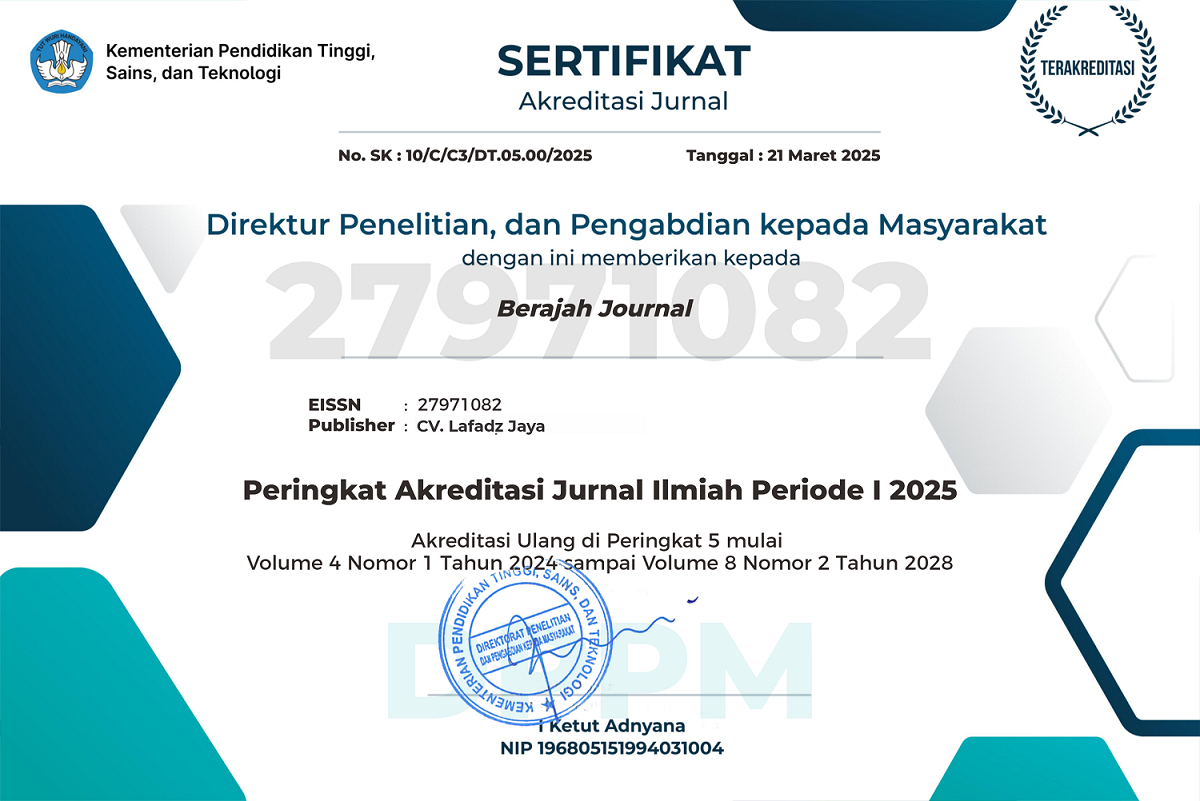THE ROLE OF WAKAF IN EMPOWERING LOCAL ECONOMIES: A STUDY OF ITS POTENTIAL IN MODERN ISLAMIC FINANCE
DOI:
https://doi.org/10.47353/bj.v4i5.427Keywords:
Wakaf, Local Economies, Islamic Finance, Economic Empowerment, Sukuk WakafAbstract
Wakaf, as an integral component of Islamic philanthropy, has long played a crucial role in the socio-economic development of Muslim communities. Traditionally used for religious and charitable purposes, the concept of wakaf has evolved to serve a broader spectrum of needs in modern Islamic finance. This paper explores the potential of wakaf in empowering local economies by channeling its resources towards sustainable economic development. Through case studies and analysis of successful wakaf-based projects, the paper demonstrates how wakaf institutions can provide financial resources for infrastructure development, education, healthcare, and small-to-medium enterprises (SMEs). Moreover, the research highlights the role of innovative Islamic financial instruments, such as cash wakaf and sukuk wakaf, in unlocking the untapped potential of wakaf assets. The findings suggest that, with proper management, wakaf can significantly contribute to poverty alleviation, job creation, and overall economic empowerment. However, the paper also addresses the challenges facing wakaf institutions, including regulatory constraints, governance issues, and a lack of public awareness. The study concludes with policy recommendations for maximizing the socio-economic impact of wakaf within the framework of modern Islamic finance, emphasizing the need for stronger institutional support and more strategic collaboration between stakeholders.
Downloads
References
Abdurrahman, Y. (2018). The Role of Cash Wakaf in Poverty Alleviation: A Case Study in Indonesia. International Journal of Islamic Economics, 5(2), 45-60.
Ahmad, M. (2019). Sukuk Wakaf as an Instrument of Islamic Social Finance: Potentials and Challenges. Journal of Islamic Finance, 10(1), 12-25.
Ali, S. S. (2013). Islamic Finance and Sustainable Development: Promoting Responsible Business Practices. Islamic Economic Studies, 21(1), 109-132.
Cizakca, M. (1998). Awqaf in History and its Implications for Modern Islamic Economies. Islamic Economic Studies, 6(1), 43-70.
Dusuki, A. W. (2008). Understanding the Objectives of Islamic Banking: A Survey of Stakeholders' Perspectives. International Journal of Islamic and Middle Eastern Finance and Management, 1(2), 132-148.
Hassan, M. K., & Ashraf, A. (2010). An Integrated Poverty Alleviation Model Combining Zakat, Awqaf, and Micro-Finance. The Bangladesh Development Studies, 33(4), 35-60.
Ismail, A. G., & Possumah, B. T. (2014). Waqf as Economic Driver in Malaysia. Journal of Islamic Banking and Finance, 3(1), 19-25.
Kahf, M. (2003). The Role of Waqf in Improving the Ummah Welfare. International Seminar on Waqf as a Private Legal Body, 6(1), 1-26.
Khan, F. (2012). Waqf and the Development of Islamic Finance in Africa. Journal of Islamic Economics, Banking and Finance, 8(3), 55-71.
Mohsin, M. I. A. (2013). Financing through Cash-Waqf: A Revitalization to Finance Different Needs. International Journal of Islamic and Middle Eastern Finance and Management, 6(4), 304-321.
Muhammad, N. A., & Hasan, Z. (2016). Sustainable Development Through Waqf Financing: Issues and Solutions. Journal of Islamic Economics, 9(2), 1-17.
Noor, A. M. (2015). The Potential of Waqf for Poverty Alleviation in Bangladesh: Lessons from Selected Asian Countries. Journal of Islamic Finance, 7(2), 34-45.
Obaidullah, M., & Khan, T. (2008). Islamic Microfinance Development: Challenges and Initiatives. Islamic Research and Training Institute, 9(1), 45-78.
Osman, M. F., & Ahmad, R. (2015). Waqf-Based Microfinance: Realizing the Social Role of Islamic Finance. Journal of Islamic Finance, 4(1), 35-47.
Qaradawi, Y. (1999). Fiqh al-Zakah: A Comparative Study of Zakah, Regulations and Philosophy in the Light of Qur'an and Sunnah. Islamic Foundation.
Rahman, A. (2014). The Revitalization of Waqf: Strategies and Best Practices for Poverty Alleviation. Journal of Islamic Philanthropy, 5(2), 27-38.
Rashid, S. K. (2011). Awqaf Experiences in South Asia. Awqaf Foundation for Islamic Societies.
Sadeq, A. M. (2002). Waqf, Perpetual Charity and Poverty Alleviation. International Journal of Social Economics, 29(1), 135-151.
Saeed, A. (2009). Islamic Banking and Finance: The New Regulatory Challenge. John Wiley & Sons.
Siraj, S. A. (2012). The Role of Waqf in the Economic Development of Muslim Communities: Past, Present, and Future Prospects. Review of Islamic Economics, 6(2), 91-104.
Smolo, E., & Mirakhor, A. (2010). The Global Financial Crisis and Its Implications for the Islamic Financial Industry. International Journal of Islamic Finance, 9(3), 120-130.
Sulaiman, M., & Zakariyah, A. (2015). Shariah Governance in Islamic Finance: An Ethical Appraisal. Journal of Islamic Finance, 4(1), 1-15.
Usmani, M. T. (2002). An Introduction to Islamic Finance. Kluwer Law International.
Wilson, R. (2004). Overview of the Sukuk Market. Journal of Islamic Economics, Banking, and Finance, 4(1), 22-34.
Yaacob, H. (2013). Waqf and Its Role in Socio-Economic Development. Journal of Islamic Philanthropy, 6(2), 17-29.
Yusuf, T. (2010). Cash-Waqf: Historical Evolution, Modern Practices and Implications for the Islamic Economy. Journal of Islamic Finance and Business, 7(1), 76-89.
Zaman, M. R. (2014). Islamic Finance: Function and Governance. The Islamic Research and Training Institute.
Zahra, S. (2015). Islamic Philanthropy and Socio-Economic Development: Case Studies from Southeast Asia. Journal of Islamic Economics, 8(2), 33-44.
Zulkifli, A. (2018). The Role of Islamic Finance in Achieving the Sustainable Development Goals (SDGs). Journal of Islamic Banking and Finance, 10(4), 45-57.
Zaman, S. M. (2012). Transforming Awqaf Into an Effective Institution for Poverty Alleviation in Pakistan. Journal of Islamic Economic Development, 8(3), 100-115.
Downloads
Published
How to Cite
Issue
Section
License
Copyright (c) 2024 Ana Muntadhirotul Maghfiroh

This work is licensed under a Creative Commons Attribution 4.0 International License.






















